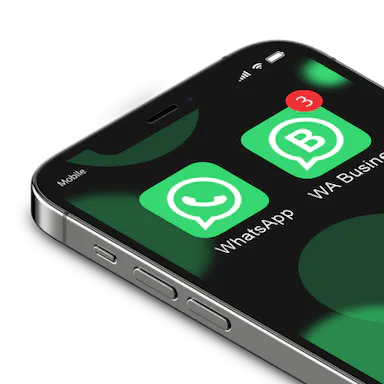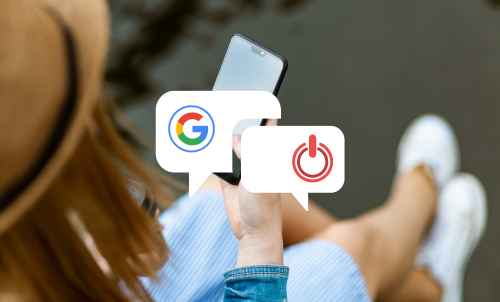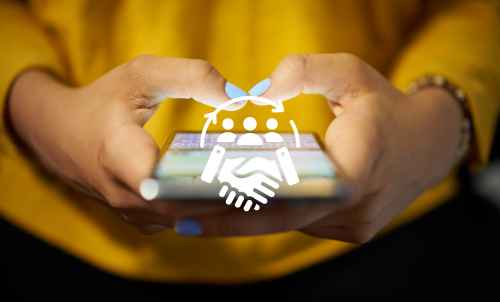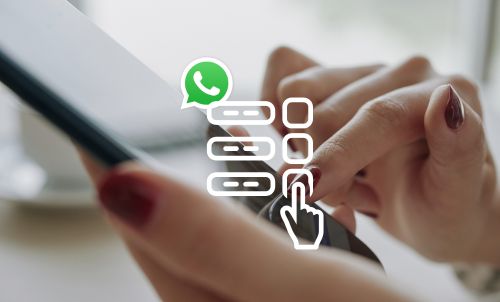Table of Contents

WhatsApp and Signal are both extremely popular messaging apps. They allow you to send messages and media using end-to-end encryption to family and friends.
In recent years, privacy has become a key concern for many users, and you may have heard that Signal and WhatsApp store and use data differently.
So, which app comes out on top when you compare them? And is there a ‘business’ version of Signal that is similar to WhatsApp Business? Read on to find out all you need to know to decide whether Signal or WhatsApp is the right choice for you.
What is Signal?
Signal is an instant messaging service that is accessible via apps. You can use Signal for text messages, media sharing, voice calls and video calls.
You can communicate one-on-one with an individual Signal user, or set up a group message to communicate with more than one user.
Signal uses end-to-end encryption to keep every conversation, including both messages and calls, secure.
Signal is free to use, and as a non-profit, it relies on grants and donations to fund the platform. Signal doesn’t use ads, affiliate marketing or tracking within the app.
What is WhatsApp?
WhatsApp is also an instant messaging service, which is accessible via apps or web browsers. You can send text, images, GIFs, documents, audio files and videos, and make voice or video calls.
WhatsApp allows you to set up chats with one person at a time, or with multiple people in group chats.
WhatsApp uses end-to-end encryption to protect every message and call.
While WhatsApp Messenger is designed for communicating with family and friends, WhatsApp also offers a separate app, WhatsApp Business, which is packed with useful tools and features to upgrade your business communications.
Both WhatsApp and WhatsApp Business are free to use, although the company has recently announced a Premium version of WhatsApp Business that will be available via subscription. Larger companies can also pay to use the WhatsApp Business Platform (API) which has a conversation-based pricing system. WhatsApp is owned by Meta (Facebook).
Key similarities between Signal and WhatsApp
Signal and WhatsApp both have the following features:
- Voice and video calls.
- Text messaging.
- Image, GIF, video and voice note sharing.
- Individual and group chats.
- End-to-end encryption.
- Built-in safety features.
- Disappearing messages.
- Linked devices (four on WhatsApp, five on Signal).
- Chat backups.
- Notification controls.
- Cross-platform syncing.
- Status updates.
Both apps are available on most major devices and operating systems, including Android, Apple, Mac and Windows. Signal provides a Linux app and an official iPad app, while WhatsApp doesn’t – but WhatsApp can be used in a web browser on any device, including iPads and Linux computers.
Key differences between Signal and WhatsApp
So, what sets these two apps apart? There are several key differences between WhatsApp and Signal:
WhatsApp has more users than Signal
WhatsApp has over 2 billion active users, while Signal has roughly 70 million active users. Many businesses also use WhatsApp for their professional communications with customers. That means that both your personal and professional contacts are much more likely to be using WhatsApp than Signal.
Signal is (arguably) more private than WhatsApp
Signal offers a higher level of privacy and security than WhatsApp in some ways. Signal doesn’t collect user or device data, while WhatsApp does send some user and device data to Meta, who own the messaging app. This information includes your phone number, contacts, device and user identifiers, app usage and location.
Signal’s call-relay can also be used to hide a caller’s IP address, while WhatsApp doesn’t hide your IP address during calls. However, both apps offer end-to-end encryption and self-destruct messages.
WhatsApp has a separate Business app, while Signal doesn’t
WhatsApp also has a completely separate app for professional use, called WhatsApp Business. This app includes business tools, such as Business Profiles and Catalogues, Labels, Auto-Replies, Short Links and QR Codes. There isn’t an equivalent Signal app designed specifically for business use.
WhatsApp offers Broadcast Channels, while Signal doesn’t
The WhatsApp Business app includes Broadcasts: a professional tool that you can use to send one-to-many messages to particular groups of contacts. This is different from a group chat, where participants can see who else is in the group, and reply to everyone in the group. Broadcasts work in a similar way to sending an email with contacts listed in the ‘BCC’ field; participants can’t see who else received the message, and when they reply, their message will only come through to the original sender.
Signal doesn’t offer an equivalent feature to WhatsApp Broadcasts.
Which is more secure: Signal or WhatsApp?
Both WhatsApp and Signal are end-to-end encrypted, meaning that your messages are kept safe and secure from third parties. That means that even the companies themselves can’t access your messages.
Signal also includes software to protect the metadata that is created by using the app, such as the time of sending and who messages were sent to. This software is called Sealed Sender, and means that not even Signal can see this metadata.
In contrast, WhatsApp can see your metadata. The main difference between the two platforms is that Signal doesn’t sell or monetise user data or content in any way, while WhatsApp does share some user data with Meta, it’s parent company.
Both Signal and WhatsApp do state in their privacy policies that they will need to share your data in certain circumstances, such as to meet local laws, legal processes or enforceable governmental requests, and to detect or address fraud, security or technical issues.
How to choose between Signal and WhatsApp
There are a few factors to consider when trying to choose between using WhatsApp and Signal. Let’s look at how both apps perform for personal and business use.
Which is better for personal use: Signal or WhatsApp?
If you’re concerned about privacy and want to keep your data as secure as possible, Signal comes out on top.
However, as most people already use WhatsApp and many aren’t interested in setting up a second messaging app, you might have difficulty convincing your friends and family to move over to an entirely new platform. If you’re looking for the easiest option which most people are already set up on, WhatsApp Messenger is an excellent choice for chatting to your friends and family.
It’s also worth noting that WhatsApp does provide many safety features, including end-to-end encryption, and has a strong emphasis on keeping users’ data safe. WhatsApp is also always updating the app, with new safety features regularly being announced.
Which is better for business use: Signal or WhatsApp?
Signal doesn’t have a business-specific version of the app, so WhatsApp is the undeniable winner for professional use.
WhatsApp Business is a separate app, designed specifically with the needs of small-to-medium businesses in mind. That means a whole host of tools and features to supercharge your business communications, from Auto-Replies and Quick Replies to Short Links and QR Codes.
Once you’ve created a WhatsApp Business account, you can create a Business Profile showing your company’s business description, profile image, opening hours, website, contact details, and links to your social media profiles. You can also create a Business Catalogue, showcasing your products or services so that potential customers can browse with ease.
Getting started on WhatsApp Business with YourBusinessNumber
Are you looking to set up a WhatsApp Business account, but already have a WhatsApp Messenger account that you use to chat to family and friends? We have the answer. In just a few clicks, you can set up your company on WhatsApp Business, without needing to buy a second handset or pay for an expensive second phone contract.
So, what’s the solution? With a second virtual business number, you can install and verify the WhatsApp Business app on the same phone as WhatsApp Messenger. That means a better work-life balance, separation between your personal and professional contacts, and access to all the incredible marketing tools on offer within the WhatsApp Business app.
With YourBusinessNumber, you can generate a second virtual phone number in just a few clicks. We offer flexible, low-cost subscriptions, so you can stay in complete control.
So what are you waiting for? Get started with your new WhatsApp Business number today!
Author:

George Lineker
Get A Virtual Number Now!
Receive your number for WhatsApp verification in just 3 clicks!



